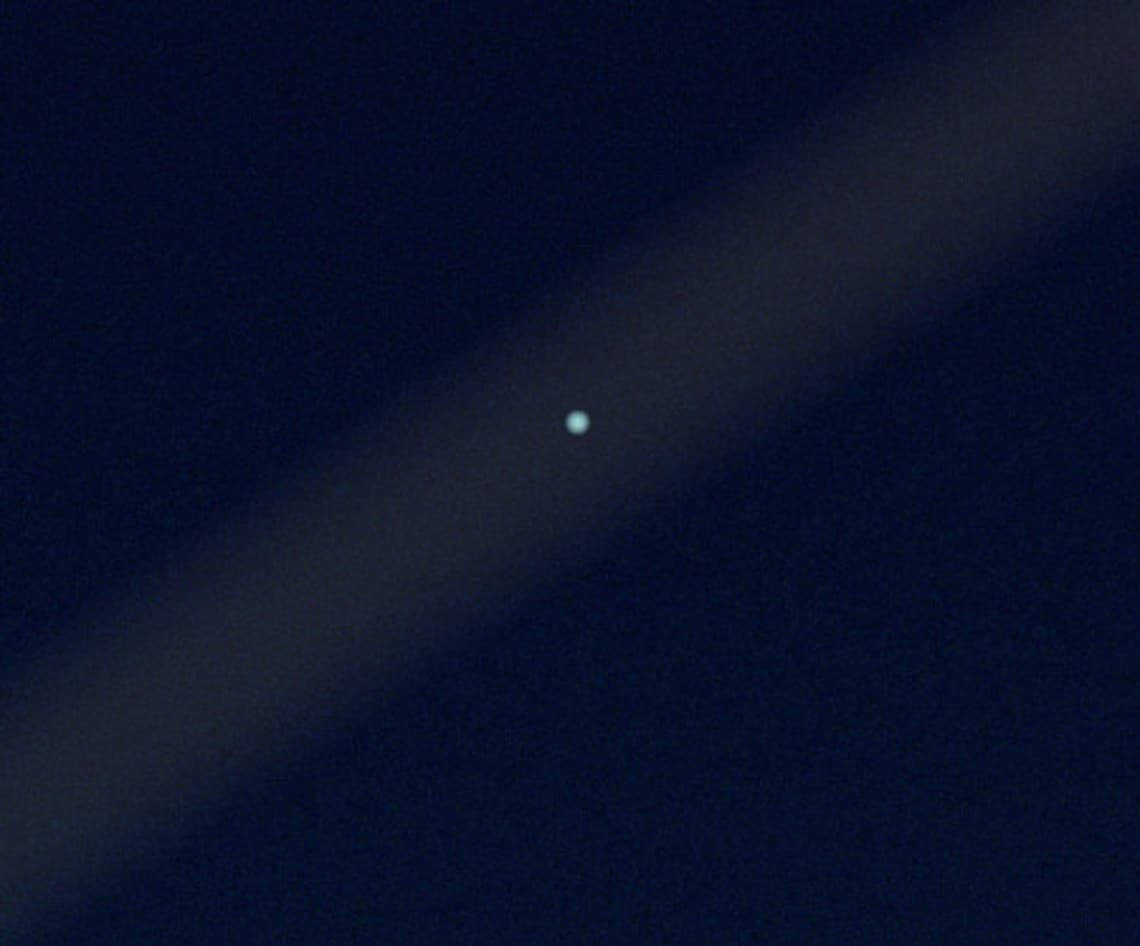
But Voyager was hurtling toward the edge of the solar system, and its cameras were imminently shutting down. Carl Sagan had first proposed the observation nearly a decade earlier, only to have the idea rejected over and over again for several reasons, including concerns that the images wouldn’t provide any scientific value.

On Valentine’s Day in 1990, Voyager methodically assembled a family portrait of the solar system’s many worlds. There, pressed onto a star-studded sky, were a dazzling array of planets-ringed Saturn, giant Jupiter, bright white Venus, and a stunningly pale, blue, watery Earth.

Nearly a billion miles farther out than Neptune, it suddenly swiveled around and stared backward.

Thirty years ago today, NASA’s Voyager 1 spacecraft had already traveled well beyond the realm of the planets and was shooting toward interstellar space.


 0 kommentar(er)
0 kommentar(er)
